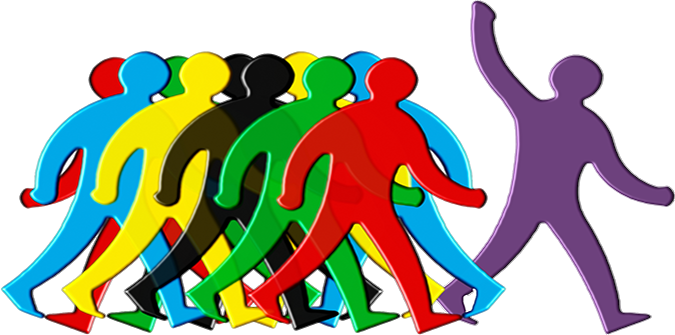 In order to understand the roll-out and consequences of neoliberalism, we need to think about the role of measurement and metrics in our lives, argues David Beer. More than this, though, we need to reflect on how these metrics make us feel. The picture seems to be one of increased anxiety and insecurity about ourselves.
In order to understand the roll-out and consequences of neoliberalism, we need to think about the role of measurement and metrics in our lives, argues David Beer. More than this, though, we need to reflect on how these metrics make us feel. The picture seems to be one of increased anxiety and insecurity about ourselves.
To borrow a phrase from social media’s lexicon, neoliberalism is a concept that is trending. And with good reason: it captures something of the times. Narratives vary, but at its core the term captures the roll-out of market structures across all domains of social life. This is a form of governance in which the promotion of competition is central to the pursuit and implementation of what Wendy Brown describes as ‘the model of the market’.
These ideas are now quite familiar yet there is one crucial aspect that doesn’t get the attention it deserves: we are measured almost constantly in our lives. From the many ways that our performance is measured at work, to the way that our organisations are ranked in league tables, through to credit scores, risk scoring for insurance and then to the measures captured by smartphones, fitness apps, wearables and even the stats on our social media profiles. The list goes on. Metrics are an embedded part of our lives.
Through these metrics we are pushed and pulled in all sorts of directions by the imperative to be competitive. The rankings produced by those many competitions encourage us to follow the logics of metrics by making ‘informed’ or ‘strategic’ choices about what services and products we consume. Metrics shape how we judge and, more crucially, how we are judged. Systems of measurement are the mechanisms of neoliberal roll-out. In short, metrics are needed to enable differentiation, to facilitate rankings and to demarcate winners from losers. But to understand how markets govern, to understand how they discipline us and shape our behaviour, we need to understand how metrics make us feel.
How do you measure up? (Image credit: Sonny Abesamis CC BY 2.0)
To instigate behaviour, measurements need to be affective. They need to provoke bodily and emotional reactions that lead us to adapt. Provoking a response requires us to feel certain ways. By provoking feelings, metrics are able to shape our lives before, during and after the act of being measured. We anticipate being measured and we shape our behaviours in accordance with those anticipations. But this goes beyond a simple gaming of the system. This is not just about us adjusting to the measures in a pragmatic attempt to do well, to fit in, or to position ourselves favourably. These are important, but the point is that we need to see this in terms that capture the physical and emotional costs of these calculative competitions. These are what Ros Gill has called the ‘hidden injuries’ of neoliberalism. Anxiety, shame and uncertainty abound.
We can reflect here on accounts of ‘anxiety’ and ‘gut-wrenching fear’ felt by teachers when they are being assessed, measured, and ranked. This shows how the experiences of neoliberal metrics and rankings create bodily reactions. We can also turn to accounts of the working experiences of those operating in hi-tech data-heavy and metric-loaded working environments, in which measurement is a constant nagging and anxiety-inducing presence in the lives of workers. We need not stop there though, it has even been suggested that the quantified self-movement, based upon the ability and desire to measure our own bodies through apps and wearables, can be anxiety inducing. This is where, as one user described, the revelations and constant switched on presence of such devices end up increasing stress levels – the suggestion being that it is stressful to discover that you don’t get enough sleep, that you don’t exercise enough and that you don’t compare well to your friends’ shared data. According to this experience these devices make our limitations clear to us.
Measuring ourselves for fun, despite the rhetoric of bodily management, may also then be producing ‘hidden anxieties’. And, of course, social media use is often thought of as stressful, as a recent Pew Research Centre report has outlined – the scaling up of metric based measures of our performance on these social media platforms will only extend this. We are even able to analyse our own performance on Twitter to see if anyone actually sees or reacts to the things that we say, and not just through likes and shares but through detailed stats on the ‘engagements’ with our Tweets.
In his book The Limits of Neoliberalism, Will Davies suggests that uncertainty is crucial to the functioning of neoliberal governance. It would seem that the aim of a neoliberal approach is to produce uncertainty which then stimulates competitive entrepreneurial activity. The more uncertain people are, the more they are likely to be pushed and prodded into value production. The presence of competition is aimed at making us feel uncertain about what will happen, how we will be ranked and what this will mean. The spread of neoliberal models of the market are geared towards the ongoing production of uncertainty. The use of indicators and measures to assess our performance – whether at work, in our lifestyles or in our social media based networks – provoke feelings of uncertainty and precarity. Therefore, insecurity is the objective.
And the insecure individual is the self-training individual. It is perhaps little wonder that we are seeing reports of an ‘anxiety epidemic’. This could well be, at least in part, a product of the systems of measurement and ranking as they become instantiated in emotional and physical wellbeing. In attempting to understand such phenomena, we perhaps need to reflect on how metrics are being used to provoke anxiety. The deeper our anxiety, the more pliable we are as self-training consumers and producers.
It has been suggested that quantitative indicators are deeds: they have intentions, they have aims. They are bound up with certain notions of value and worth. These numbers don’t just measure; they exist to provoke feelings in us that might then lead to practices.
Neoliberalism is not an ‘art of governance’ that operates at a distance. Rather, through the deployment of various metrics it is able to operate at the level of our bodies and emotions. What makes neoliberalism so powerful as an art of governance is its ability to provoke uncertainty, to play with emotional and physical experience and to demarcate visions of what is worthwhile. Neoliberalism is founded on the production of uncertainty and anxiety through metrics. This is how models of the market translate into individual action. We have to wonder what the implications will be if we continue to expand the metric-based evaluations implicit to the roll-out of the ‘model of the market’. These feelings will only be exacerbated if we continue to try to measure everything. The intensification of the measurement of our lives could well intensify the production of our uncertainty and anxiety.
 David Beer is Reader in Sociology at the University of York. Metric Power is published in June. Popular Culture and New Media: The Politics of Circulation was recently published in paperback. He tweets @davidgbeer
David Beer is Reader in Sociology at the University of York. Metric Power is published in June. Popular Culture and New Media: The Politics of Circulation was recently published in paperback. He tweets @davidgbeer









Thank you very much for a brilliant article. I was told in a government department I worked in ten years ago “If you cant measure it, you cant manage it.” I replied “Rubbish. Einstein said ‘Not all that counts is counted, not all that is counted, counts.” It did me no favours, I went against the neo liberal ethos they were pushing.
Very thought-provoking article. I was thinking about how the current government have persistently refused to engage with qualitative evidence, dismissing any research that “doesn’t establish causality” as merely “anecdotal.” It’s a swing back to positivism, RCTs and “behavioural insights” from libertarian paternalists being used for policy-making to “change behaviours”, rather that policies being about meeting public needs. It reduces human experiences to numerical values, rankings and hierarchy, as well as shrinking the possibility of democratic dialogue and participation.
As a Massage Therapist I came to the realization a long time ago that our cultural needs us to be unhealthy. In fact, it ultimately promotes that. The reason being, unhealthy people consume more than healthy ones and we all know for our culture to survive as it is, consumption is paramount. 🙁
Great piece..
Neo-liberal technologies of self-quantification and informationalisation have an incredible potential to lead to an exacerbation of ‘self-checking’ behaviours and a form of hyper vigilance that for me are closely allied to my own experiences of obsessive ruminations and anxiety ‘disorder’. Indeed, mobile health technologies in the form of mobile phone applications that have been designed to improve emotional health and ‘well-being’ can actually be catalysts for anxiety. This is something that I am exploring in my own research looking at emotional health apps and self-monitoring as forms of emotional self-surveillance.
The continually shifting terrain of what are considered acceptable forms of ‘performance’ and the constantly changing algorithms, and metrical systems for ‘measuring’ such performance, to borrow from Bauman gives one the feeling of continually ‘skating on thin ice’. As David Beer rightly argues in his piece part of neo-liberalisms’ power is in its ability to make us feel a particular way, and this is often a feeling of uncertainty and anxiety.
Interesting piece thank you.. All forms of organisation and government offer different types of stress and anxiety.
rg religion-will i get to heaven or go to hell
tyranny-arbitrary behaviour and lack of control
lack of metrics in terms of feedback can cause stress.
Different personality types rect differently to metricss
I could do with some decent metrics to help me decide to leave or remain
The irony of course is that the EU ordo/neoliberal model does not apply these metrics to itself, it does not allow the EU Commission to be subjected to marketisation and metrics but will insist through treaty provisions that our daily working lives and our work places are subjected to a constant barrage of market metrics to assess our competitivity.
Poigniant article. Thankyou.